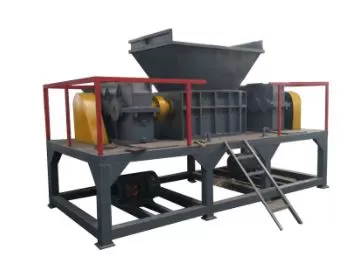Ever stood in your kitchen, staring at a mountain of tin cans, wondering what to do with them? It’s a common dilemma, especially in an era where we’re all trying to be a bit more eco-friendly. The problem is real, the frustration palpable, and the solution? Well, that’s what we’re here to explore.

The simple answer is: recycle them! Tin cans are one of the easiest items to recycle. All it takes is a little know-how and a bit of effort on our part to ensure they don’t end up in a landfill.
But let’s not stop there. Dive in with me, and let’s break down the process of disposing of tin cans in a way that’s both effective and environmentally responsible.
Why Recycle Tin Cans?
First things first, why should we even bother? Tin cans are primarily made of steel and sometimes aluminum. These materials are 100% recyclable and can be recycled infinitely without losing quality. According to Environmental Statistics, recycling tin cans saves 74% of the energy used to produce them from raw materials.
Recycling these cans also reduces the need for mining new metals, which is a significant environmental burden. Plus, the energy saved from recycling just one tin can is enough to power a TV for three hours.
How to Prepare Tin Cans for Recycling?
Before tossing them into the recycling bin, there are a few steps to ensure they’re properly prepared.
- Rinse Them Out: Any leftover food residue can contaminate the recycling process. A quick rinse under the tap will do.
- Remove Labels: If possible, peel off the paper labels. While most recycling facilities can handle them, it’s always better to make their job easier.
- Flatten If You Can: This isn’t always necessary, but flattening cans can save space in your recycling bin and the trucks transporting them.
What Happens to Recycled Tin Cans?
Once your tin cans are collected, they’re taken to a recycling facility. Here, they go through several steps:
- Sorting: Cans are sorted from other recyclables and any non-recyclable materials are removed.
- Shredding: The cans are then shredded into small pieces.
- Melting: The shredded pieces are melted down in a furnace.
- Casting: The molten metal is poured into molds to create new products.
Recycled tin cans can be turned into new cans, car parts, construction materials, and even electronics. According to Recycling Data, about 60% of a new can is made from recycled metal.
Common Mistakes in Tin Can Disposal?
Even with the best intentions, mistakes happen. Here are a few common ones:
- Not Cleaning the Cans: Food residue can attract pests and contaminate the recycling batch.
- Leaving Lids Inside: Separate the lids from the cans to avoid any machinery jams at the recycling plant.
- Including Non-Recyclables: Not all metal items are recyclable. Items like metal hangers, electronics, or batteries should be disposed of differently.
Can You Reuse Tin Cans?
Absolutely! Tin cans can be repurposed in countless creative ways. Here are a few ideas:
- Planters: With a little paint and some drainage holes, tin cans make excellent planters.
- Storage: Use them to store pens, utensils, or craft supplies.
- DIY Projects: From lanterns to bird feeders, the possibilities are endless. Check out some DIY tutorials on Creative Recycling for inspiration.
The Environmental Impact of Not Recycling?
Failing to recycle tin cans contributes to a host of environmental issues. When cans end up in landfills, they take up space and contribute to pollution. The metals in these cans can leach into the soil and water, causing contamination. Additionally, producing new cans from raw materials requires significantly more energy and resources, leading to higher greenhouse gas emissions.
How to Encourage Tin Can Recycling in Your Community?
Getting everyone on board with recycling can make a huge difference. Here are a few tips:
- Education: Inform your neighbors about the benefits of recycling and how to do it properly.
- Convenience: Ensure there are plenty of accessible recycling bins around your community.
- Events: Host recycling drives or community clean-up events to promote the cause.
Conclusion
Disposing of tin cans properly is a small but significant step we can all take towards a more sustainable future. By recycling, reusing, and educating others, we can ensure that these everyday items are managed in an eco-friendly manner. So next time you’re about to toss a tin can, remember the impact you can make.
That’s it. Let’s turn those tin cans from trash to treasure. Happy recycling!
